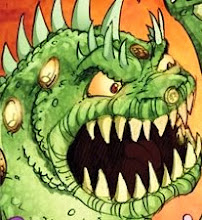
Food in History, by Reay Tannahill may be familiar because it's lurking in my sidebar under "what I'm reading", even though I've been done with it a week or two, now. Anyway, this is THE book on the history of food. Well, there are others, but they're either biased, or too detailed, or not detailed enough. This one makes a heroic effort to cover every era of history, everywhere, and does it in layman's terms. If you're interested in food, it's an enjoyable read. If you're only going to read one book on the subject, read this one.

The Man Who Ate Everything, by Jeffery Steingarten isn't meant to be food humor, but it is. This guy is a curmudgeon in the finest sense of the word. And he doesn't like putting up with bullshit. So who better to debunk food myths? Low salt and low carb diets, "Chinese Restaurant Syndrome" he debunks them all. With wit and dry sarcasam. And some lovely side trips into Paris and Northern Italy to simply talk about good food. This is a fast and easy read, too; excellent beach reading, or vacation reading.

The Botany of Desire, by Michael Pollan, takes four plants (apples, potatos, marijuana, and tulips) and shows how the human race has altered them to suit ourselves. This one pretty much covers all the methods of modern plant-breeding and industrial farming. That may sound boring, but if you're interested in food and plants, it's a fascinating read, and he's a wonderful writer. (I suppose any book is boring if you don't like the topic.)

CookWise, by Shriley O. Corriher. Shriley's a chemist. This isn't a book about the history of food (except in the sense that any good book will touch on the history of something, even if it's just 'we used to...') it's a book about how food WORKS. Why baguettes are dense and chewy, yet biscuits are light and fluffy; how the actual shape of salt crystals can effect your cooking; why chocolate gets grainy if you heat it wrong. It's all there. The writing is pretty dense and matter-of-fact, which is what you'd expect from a chemist, but it contains so much information that it's still fascinating. Plus there are over 200 recipes to try out the techniques she discusses.
So there you go. I think if you read those four books, you could probably carry on a food conversation with nearly anyone. Well, there's a fifth book, "The History of Food" by Mag Toussaint Samat. But it's a bit extreme; 782 pages. Plus it's a translation from French, and a bit on the dry side. And slanted toward French food. But if you're obsessed by the topic and want something almost entirely European, it's a good book.
Mmmm, books and food. You can't beat the combination.













3 comments:
Okay...I think I can judge my total uncoolness by how much I DON'T think about food--and the blogosphere is just littered with food ideas...I think I may have to learn to cook just to hang out with the cool kids...
Thank you for the food history/culture reviews! Two others you might like (if you haven't already read them) are "The Sacred Cow and the Abominable Pig" by Marvin Harris, which discusses the origins of food taboos; and "Much Depends on Dinner" by Margaret Visser. Margaret's book is subtitled "The Extraordinary History and Mythology, Allure and Obsessions, Perils and Taboos of an Ordinary Meal." Enjoy....
I think you would be interested in this one - "Da Vinci's Kitchen: A Secret History of Italian Cuisine" by Dave DeWitt.
Post a Comment